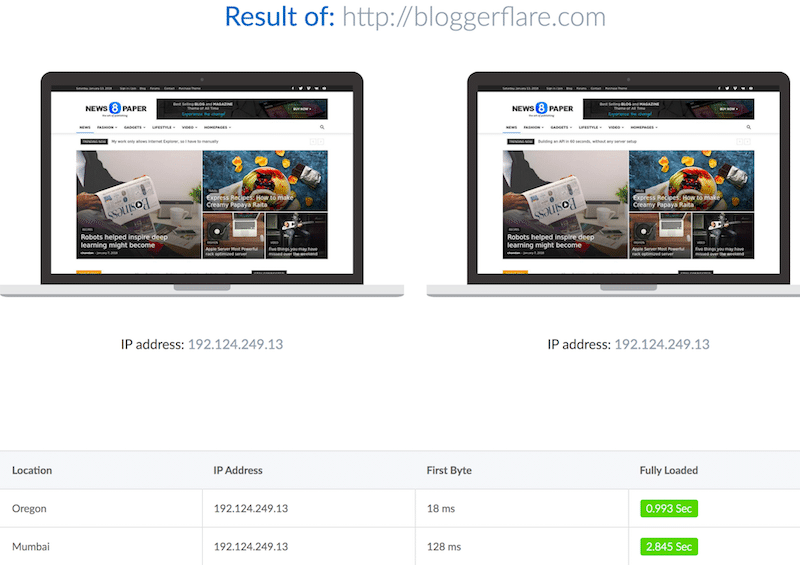CDN is included by default when you subscribe to the Website Firewall (WAF) or website security platform plan. SUCURI CDN is a global anycast network available in the following locations to speed up your site.
Europe – London, Frankfurt, Amsterdam, Bulgaria Americas – San Jose, Washington, Dallas, Sao Paulo, Chicago, Miami Asia – Tokyo, Singapore, Sydney
Some of the performance advantages of their CDN are:
GZIP compression for resource optimization HTTP/2 support for parallel resources loading over a single TCP connection Smart caching options to deliver the requested content faster and reduce the server load/bandwidth Quick setup (enable in less than 5 minutes) Integrate well with other CDN like Cloudflare, StackPath, etc.
In my previous post, I explained how to setup SUCURI with WordPress, and some of you asked to share performance benefit results. So here you go…
Testing Details
To give you an idea of what I’ve used for this benchmark testing.
I am using my lab domain (bloggerflare.com) hosted on SiteGround shared hosting in the Singapore data center. I’ve installed WordPress and using the Newspaper theme. Not using any cache plugin
And the end of this article, I’ve included a performance summary view.
Site Load Time without SUCURI
I used multiple tools to test load time from various locations around the world, and here are the results. Pingdom 5.13 seconds took to load from New York.
Geekflare Tools 2.12 seconds took from Mumbai and 3.69 from Oregan.
Here you can also note the time to load the first byte is above 350ms from both locations. Web Page Test 7.96 seconds from Singapore using Web Page Test.
Now, I will route traffic through SUCURI and will perform a speed test to compare the results. Note: I’ve updated my domain NS record to point to SUCURI DNS.
Site Load Time with SUCURI
I’ll repeat the test that I did when bloggerflare.com was directly pointing to SiteGround. Pingdom Less than 1 second.
Amazing. Geek Flare Tools
990ms from Oregon and 2.85 seconds from Mumbai. TTFB is drastically down from ~300 ms to 18ms from Oregon and 128 from Mumbai. Web Page Test I don’t know why, but it didn’t show much improvement as other testing tools.
Load time Summary
Let’s take a look at the time taken to load before and after implementing SUCURI. Timing in seconds. Not just overall time taken to load the page is improved, but also, TTFB (time to the first byte) is faster by around 50%. I hope this quick test result gives you an idea about SUCURI CDN performance. Also, it helps to clarify that implementing WAF doesn’t slow down the site. If you are looking to add security protection and improve the page load time, then SUCURI is worth considering.

![]()


























